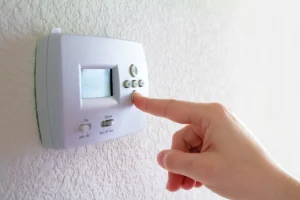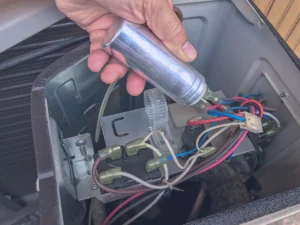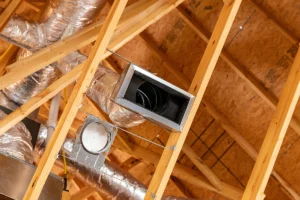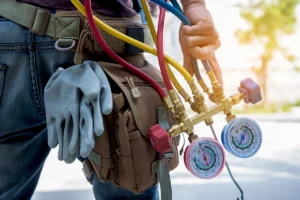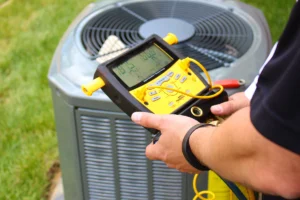Replacing your furnace is a massive step for any homeowner. Planning for replacement costs is crucial, as replacing a furnace that is reaching the end of its life or transitioning to a better one involves a more spacious budget. Replacing your furnace isn’t only an expense; it’s a new system that offers enhanced comfort levels in your place, locks down decent efficiency, and optimizes energy use across the board.
Sub Zero Temp Control has provided tips on replacing your furnace as a homeowner in Vancouver, WA. The following guide will help you understand everything you need to know so that you do not face any issues during the process.
How Much Does Furnace Replacement Cost?
Pricing for furnace types can vary massively due to various factors, which will be discussed in detail below.
Contributing Factors to Costs
- Gas Furnaces: These furnaces are by far the most widely used units and are priced between $3,000 and $7,500, depending on aftermarket enhancements. Due to their natural gas setting, these units tend to be efficient, allowing for faster and more consistent heating, which results in widened appeal in colder regions such as Vancouver, WA.
- Electric Furnaces: These types usually cost between $2,000 and $5,500. Although they are cheaper in the beginning, they may lead to more expensive electricity bills in areas with high electricity prices. These furnaces are much quieter than gas burners, and since they do not use combustion, they require lower maintenance costs.
- Oil Furnaces: These range from $4,000 to $9,000 and are rare but best suited in places that do not have access to natural gas. They are famous for their strong heating capability, although the price of oil would fluctuate with ever-changing prices.
- Propane Furnaces: These cost almost the same as gas furnaces and are ideal for non-urban areas. Since propane is contained in tanks, it is much easier to use in areas without utility services.
The Size of the Furnace Needed (BTUs)
BTUs, or British thermal units, are adopted to help people determine how much furnace is needed to heat the claimed area, as measured in square feet.
- A small home (between 1000 sq. ft and less): 40,000-60,000 BTUs
- Medium home (1000-2000sq ft): 60,000–80,000 BTUs
- Larger Homes: Homes larger than 2000 sq ft usually require over 100,000 BTUs.
An exceptionally undersized furnace will fail to maintain the home at the desired temperature, raising energy costs and stressing the equipment. At the same time, an oversized furnace will cause the rooms to be heated unequally and the equipment to short cycle.
Energy Efficiency (AFUE Ratings) There’s an initial cost in buying a High-efficiency furnace with a relatively higher AFUE rating. Still, they are usually cost-effective in the long run regarding fuel consumption. For instance:
- Standard Efficiency: 80% AFUE models are cheaper but waste 20% of the energy they consume.
- High Efficiency: 90 to 98 percent of AFUE models are more effective, ensuring that almost all used fuel is turned into heat.
For Vancouver, WA, residents who experience very cold winters, investing in a high-efficiency furnace is worth it, as it will save them money in the long term.
Brand and Quality
Premium branded items are known to be more expensive than their alternatives but, more likely than not, come with extensive coverage, a long lifespan, and additional features.
- Top Brands: Trane, Lennox, and Carrier are known for their efficiency and reliability.
- Mid-tier brands: Goodman and Rheem are more reasonable while providing decent performance. Premium brands do burn a hole in your pocket when buying. Still, considerable reductions in repair rates and longer lifespans can effectively even out the costs, making them a smarter choice.
Installation Complexity
The labor charges will also increase if any amendments or changes are required.
Ductwork Adjustments: If parts of your venting or duct files are damaged or old and do not work with the furnace, they must be repaired or replaced.
Venting Upgrades: Modern and High-efficiency furnaces usually need new venting systems to deal with condensate.
Upgrades in Wiring: More wires might be required for smart controlled or other electric furnaces.
Additional Costs
Apart from the furnace, you would expect to utilize the following resources:
- The price of the smart Thermostats ranges up to $500, and installation will help increase efficiency levels.
- Cleaning or repairing of ducts, the standard cost for duct cleaning ranges from $300-$500, while repairs can go up to $1000.
- Zoning systems and installing extra zones can help attain better temperature controls and cost up to $ 3,000.
Cost-Efficiency with an Efficient Furnace
Lowered Energy Bills
- High-efficiency heating uses less fuel to generate the required heat output. Homeowners can save hundreds of dollars annually on utility bills, especially in places such as Vancouver, WA, where heating systems are necessary.
Tax Credits and Rebates
- Various new and much more efficient furnaces are eligible for tax credits from federal or local agencies. Depending on the model and efficiency class, such systems can pay back almost $600 and sometimes even more.
Enhanced Performance and Comfort
- Most modern furnaces can provide all-year-round heating, control humidity levels as desired, and are quieter than their predecessors, enhancing home comfort.
Hiring the Right HVAC Contractor
Why a Professional?
- A certified contractor reduces the chances of an aggravation because the gas installation is done correctly. If you attempt to do the task with little knowledge, you may risk a leaky gas installation and poor efficiency.
Qualities That an Ideal Contractor Should Possess
- Make sure that all licenses and insurance are valid.
- Try to read as many reviews or references as you can.
Why You Can Trust Sub Zero Temp Control
The moments that are most memorable at Sub Zero Temp Control include:
- Experts who specialize in furnace replacements and energy-efficient designs.
- Elimination of unwelcome conditions of hidden charges and tactics.
Final Thoughts
Buying a new furnace is an expense that should be treated as an investment. To eliminate any bumps in the road, Sub Zero Temp Control should be consulted, along with knowledge of cost-influencing factors.
For professional guidance and free estimates on furnace replacement, reach out to Sub Zero Temp Control in Vancouver, WA.



